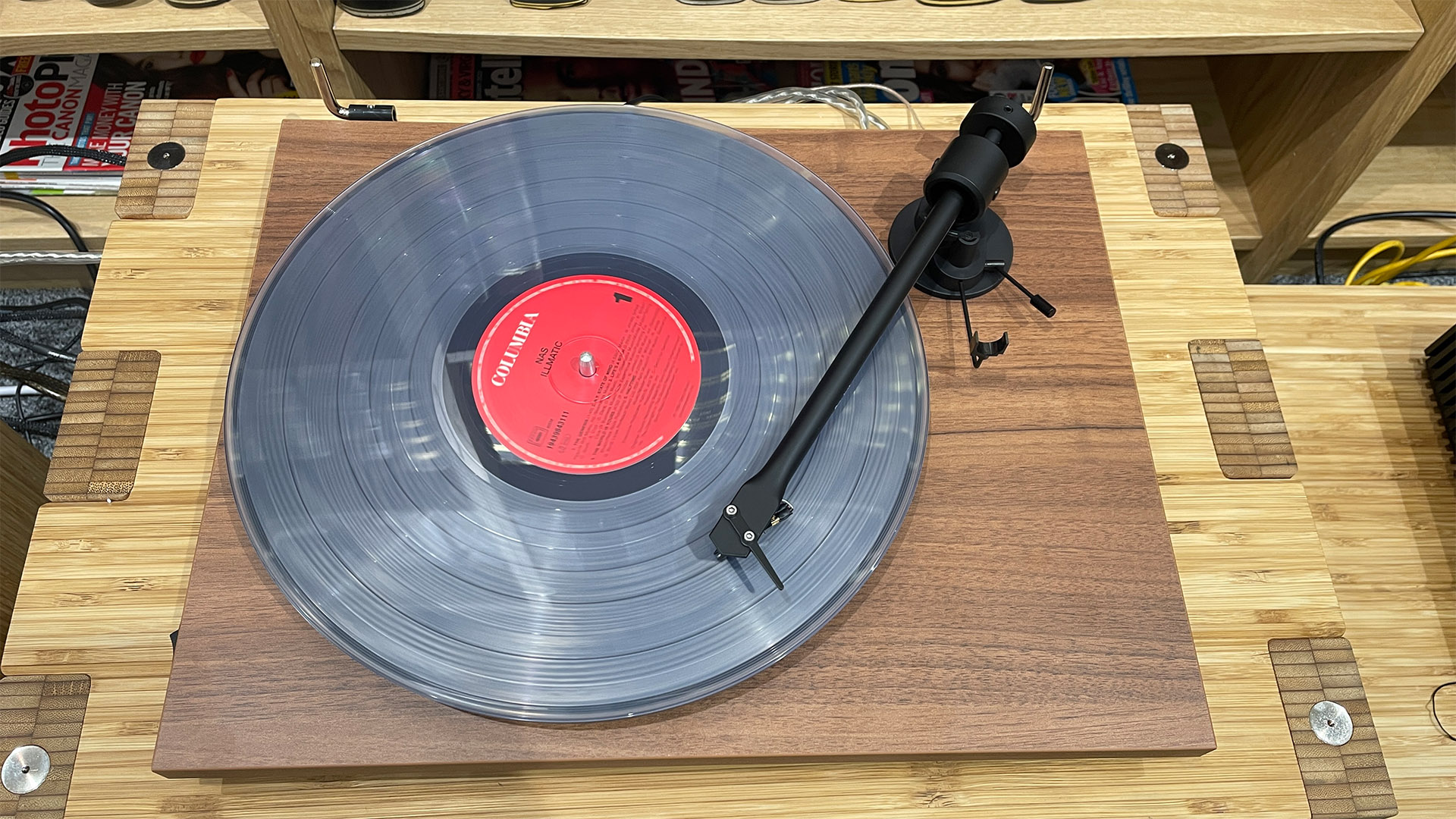Wonder Woman – 4K Ultra HD Blu-ray review
Gal Gadot's Wonder Woman saves the day with this cracking 4K Blu-ray release.
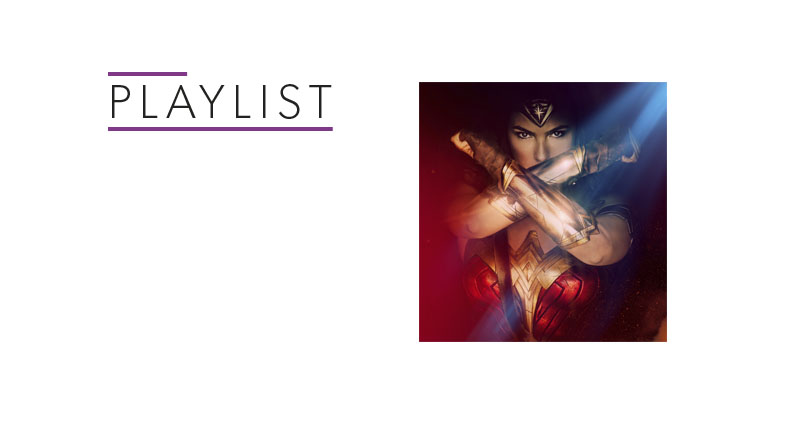
DC's attempts at emulating Marvel's success with its own superhero cinematic universe got off to a rocky start. Man of Steel had its fans, Batman vs Superman: Dawn of Justice was dour, and Suicide Squad was borderline incoherent.
The latest release, Wonder Woman, plots the road to recovery, carving out an identity for the DC Extended Universe (DCEU) and recapturing the essence of what made its characters so popular and enduring.
MORE: Watch trailers for the biggest new films coming in 2017/18
Film
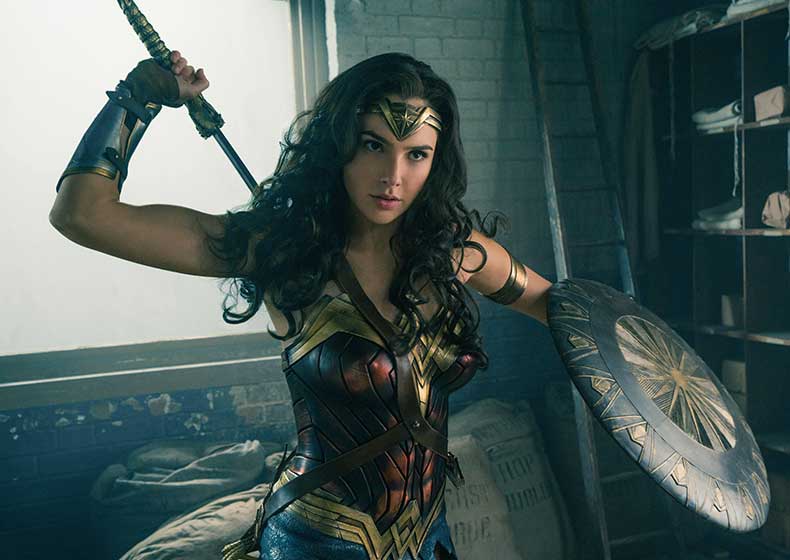
Set near the end of the First World War, Wonder Woman's plot kicks into gear when Chris Pine's Steve Trevor crash lands on the all-female island of Themyscira.
Rescued by Diana (Gal Gadot), he tells her of a great war that has thrown the world into chaos. Believing this to be the work of Ares, the God of War, Diana leaves the island to help bring an end to Ares' attempt to destabilise the planet.
Wonder Woman takes a number of cues (consciously or otherwise) from past superhero films. You could call it Superman: The First Avenger, with a bit of Thor thrown in. But in spite of the familiarity, it works well.
World War 1 isn't often covered by cinema, lending the film a bit of freshness. The fact that the central character of a superhero film is female, is a rarity in itself. And Patty Jenkins' take is a tonally balanced and reverent one that offers a rounded look at Wonder Woman.
Get the What Hi-Fi? Newsletter
The latest hi-fi, home cinema and tech news, reviews, buying advice and deals, direct to your inbox.
Gal Gadot makes for a surprisingly good Diana Prince/Wonder Woman, imbuing her with a sense of naivety and a fierce sense of morality and fearlessness. She's both inspirational and aspirational, exactly what the character needs to be.
MORE: 4K Ultra HD Blu-ray – all the 4K discs on sale and coming soon
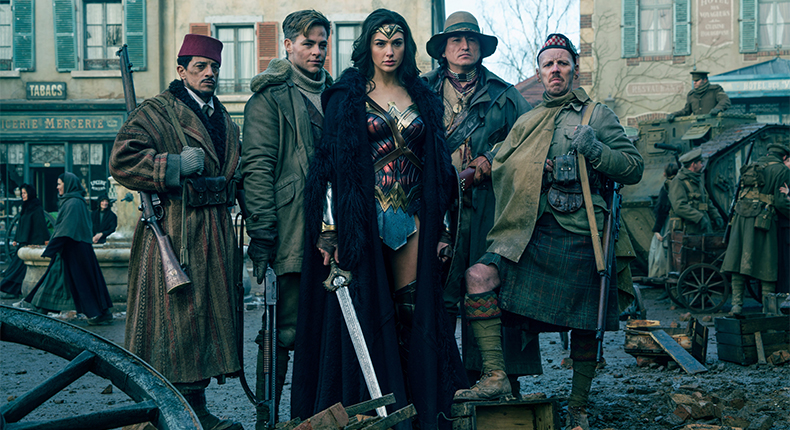
She's assisted by Chris Pine, who develops good chemistry with Gadot and brings a sense of humour to the film. Their interaction has shades of the Steve Rogers/Peggy Carter relationship in Captain America: The First Avenger and is a pleasure to watch.
Saïd Taghmaoui, Ewen Bremner and Eugene Brave Rock feature as a group of mercenaries. Although their roles aren't extensive, each gets a moment to stand out and etch out their character.
Lucy Davis's Etta Candy delivers some nice lines in comedic relief, and Robin Wright's Antiope and Connie Nielsen's Hippolyta gives the film a nice sense of gravitas too.
However, the villains fare less well. Danny Huston's Ludendorff and Elena Anaya's Dr Maru/Poison are too cartoonish in character, and don't leave a lasting impression.
The first hour is the film's most interesting, the high point being the Wonder Woman reveal in the No Man's Land sequence. We weren't too keen on the final act, a sequence drenched in CG effects that brings back memories of Batman vs Superman's incredibly long finale.
But regardless, this is a fine first outing, setting a higher bar for following films in the DC universe.
Picture
Tested with Oppo UDP-203 and Samsung QE55Q7F 4K TV
Shot on 35mm film with some scenes in 6K, Wonder Woman received a 2K Digital Intermediate, which pegs this as another 2K to 4K upscale.
Despite that, it's a fine-looking film. Colours are bright, bold and punchy, the HDR10 encode giving colours more subtlety and intensity than its Blu-ray counterpart.
With more shades to be found, scenes are better defined. It's a pleasing enough image, though you could question whether it's too saturated.
The resolution offers a clear uptick in detail and impressive black levels, with night scenes standing out more than they do on the Blu-ray. Blacks are impressively deep, although some detail may be hidden.
Skin tones and complexions stand out more than on the Blu-ray, contributing to a more expressive and improved presentation over its Blu-ray counterpart.
MORE: 10 of the best film scenes to test picture quality
Sound
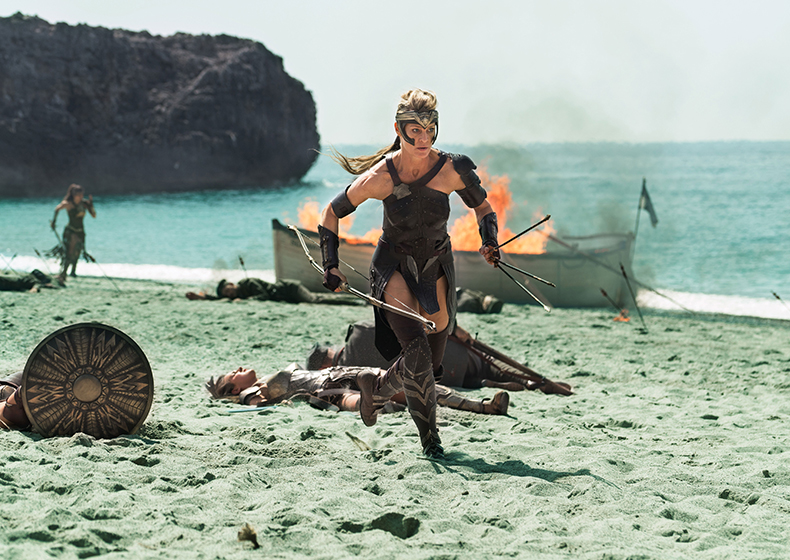
Tested using Denon AVR-X6400H, PMC Twenty 23 5.1 with KEF R50 modules (7.1.2 Dolby Atmos set-up)
The soundtrack focuses on filling the room, rather than putting the onus on the height channels, and it works terrifically.
Dialogue is mostly derived from the centre, apart from a few instances where the height channels are used. Gadot's narration is loud and clear and dialogue is strong throughout the film.
LFE effects are delivered with some heft, and when Diana first uses her gauntlets, the shockwaves pulse around the room. The track has a number of big bangs, but they are crystal clear and loud.
Integrating front and back speakers to good effect, the positioning and placement of effects are robust. In one instant, a gunshot from behind startled us as much as it did the characters in the scene.
Rupert Gregson-Williams' score – incorporating Hans Zimmer/Tina Guo's electric cello riff – fills the room. It's especially effective during the No Man's Land sequence, building and swelling as Diana makes her stand.
The soundtrack has heft, authority and produces an engrossing sound. It's also loud at times, especially during the final fight, adding to the film's intensity. A thumbs up from us.
MORE: 10 of the best film scenes to test surround sound
Verdict
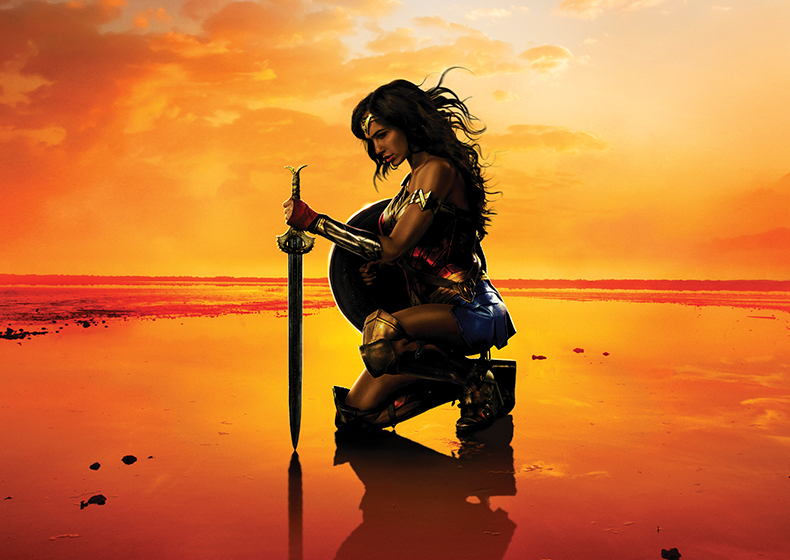
Wonder Woman, like Richard Donner's Superman: The Movie, tells its story with verve and a sense of reverence for its character.
Gadot carries the film on her shoulders, but is aided by a fine cast. It's a shame that, apart from Diana, we're unlikely to see these characters again.
Despite a few weak villains and an underwhelming denouement, Patty Jenkins deserves credit for her achievement in getting an origin story right. That's no easy feat.
Overall, Wonder Woman is a fine 4K release, with a bold and colourful picture and a enjoyable Dolby Atmos track. It is very much recommended over the Blu-ray.

Extras
Open the case and you'll find a leaflet for a digital download copy and an insert for the upcoming Justice League film. Otherwise the extras are as follows.
- Epilogue: Etta's Mission
- Crafting the Wonder
- A Director's Vision
- Warriors of Wonder Woman
- The Trinity
- The Wonder Behind the Camera
- Finding the Wonder Woman Within
- Extended Scenes
- Alternate Scene: Walk to No Man's Land
- Blooper Reel
- Bonus Trailer for Justice League
Kob began his career at What Hi-Fi?, starting in the dusty stockroom before rising up the ranks to join the editorial and production team as the Buyer’s Guide editor. Experienced in both magazine and online publishing, he now runs the TV & audio section at Trusted Reviews where he keeps a beady eye on all the latest comings and goings in the hi-fi and home cinema market.
